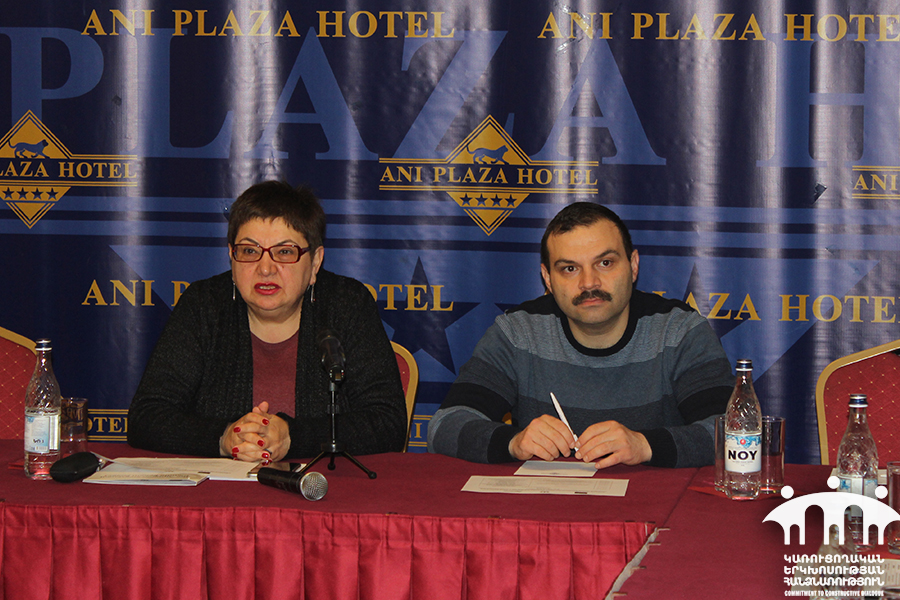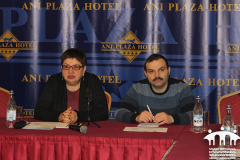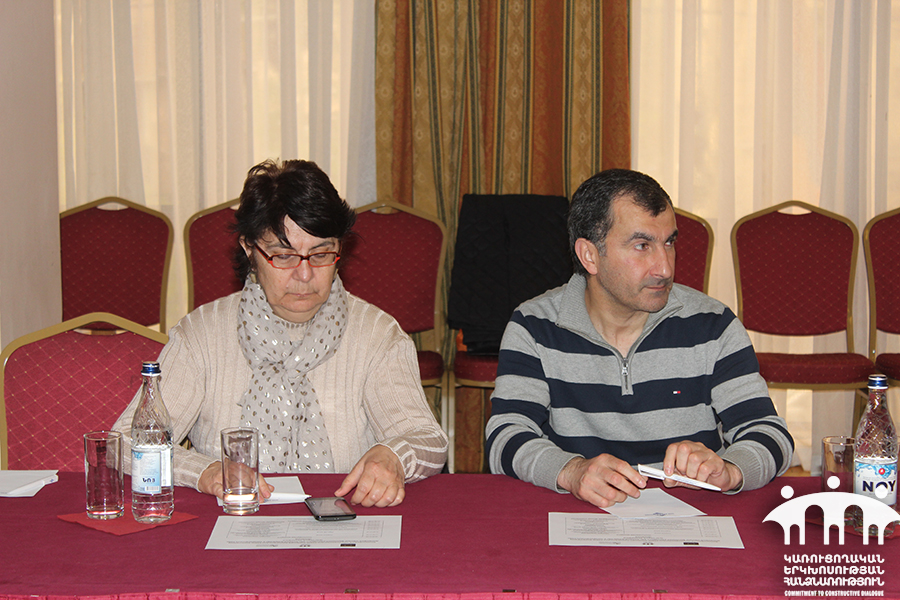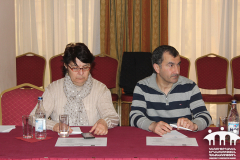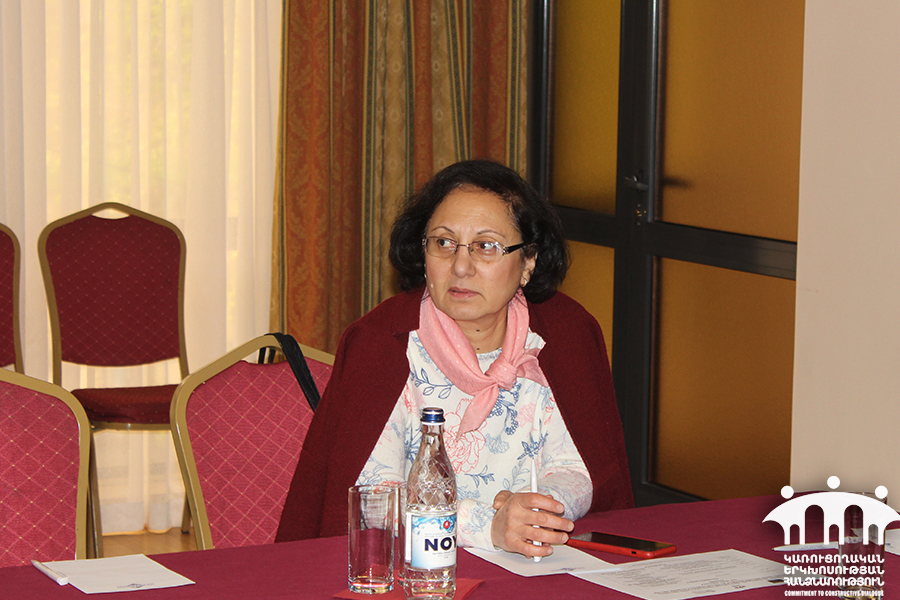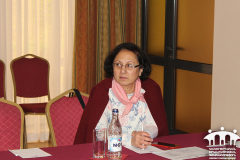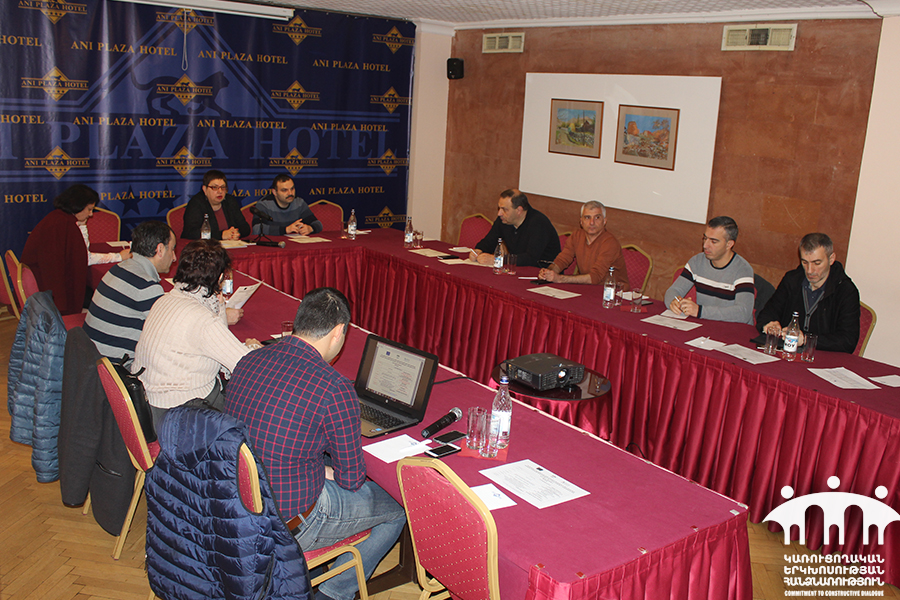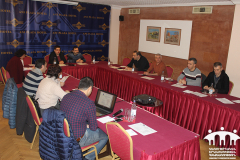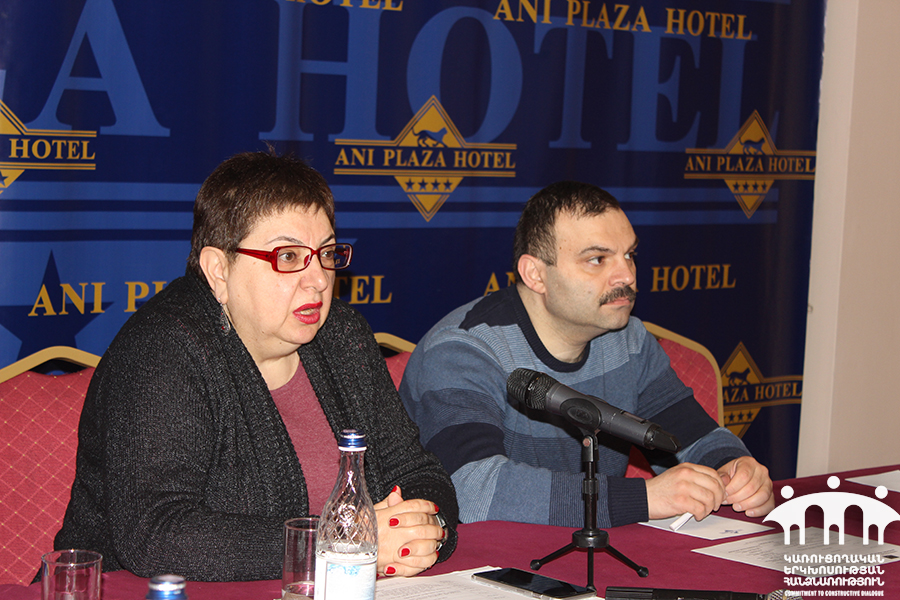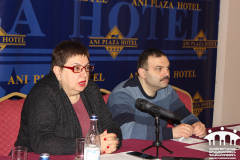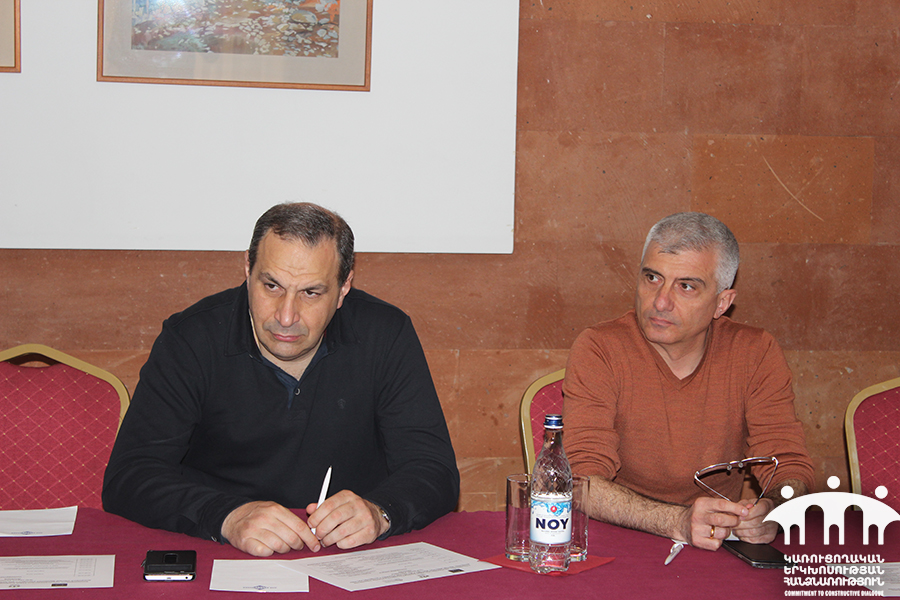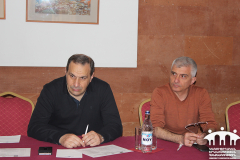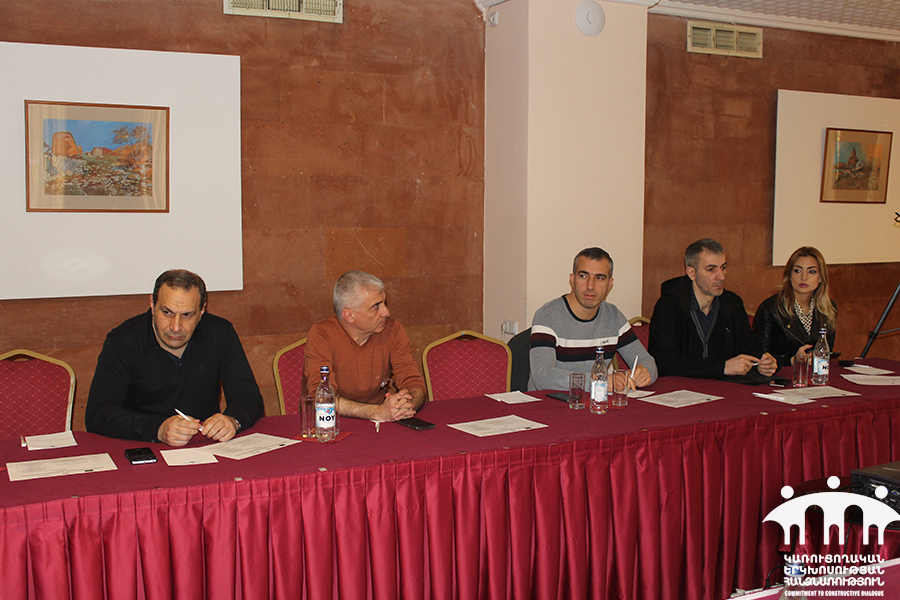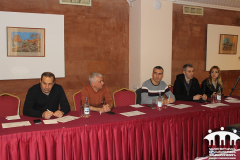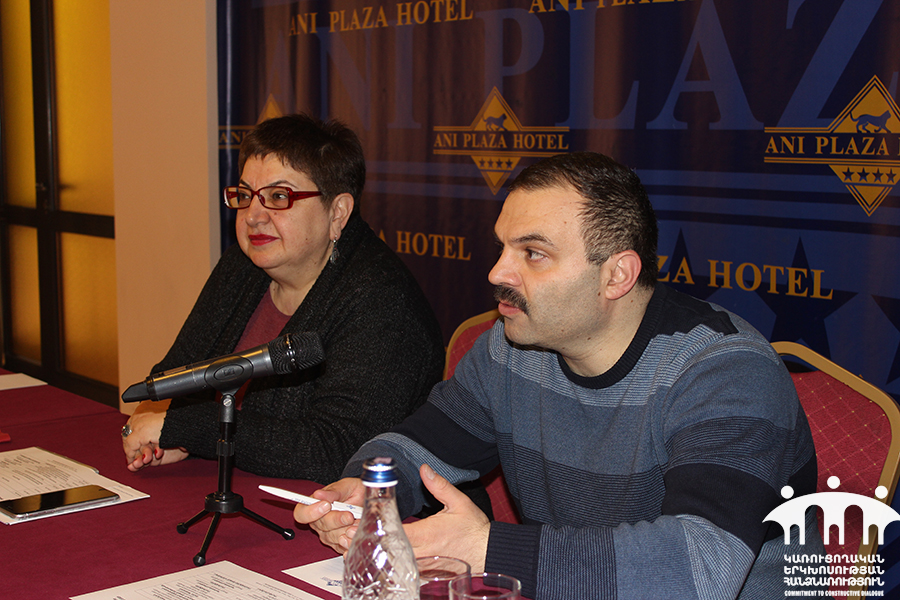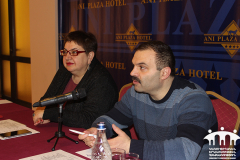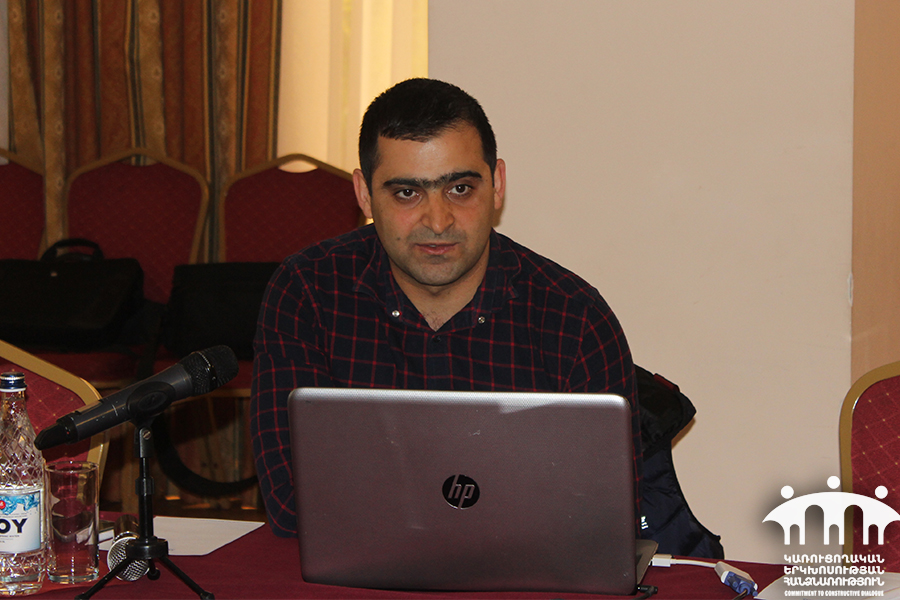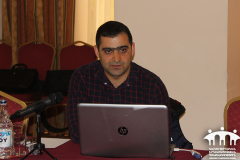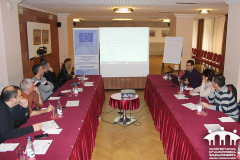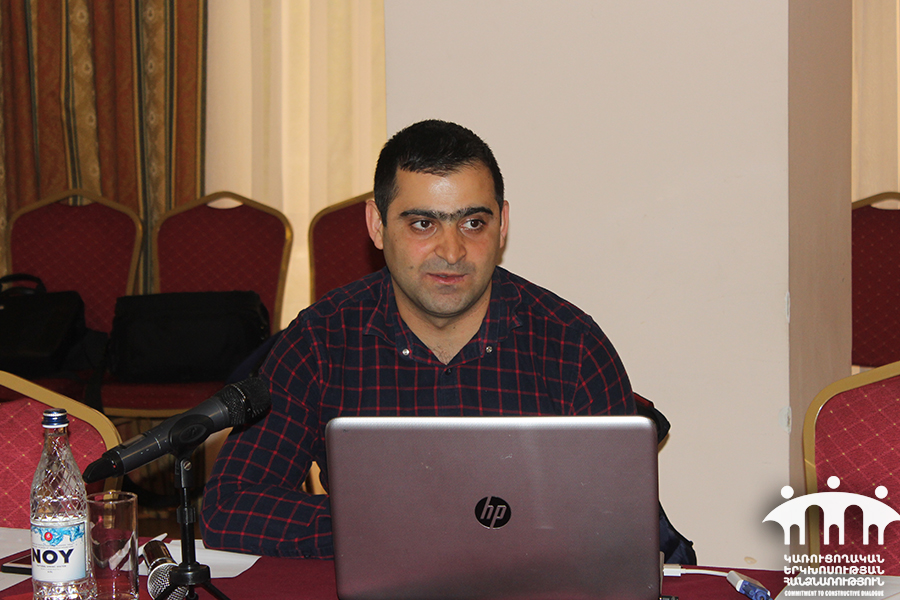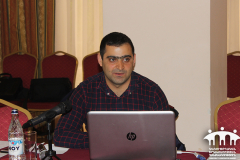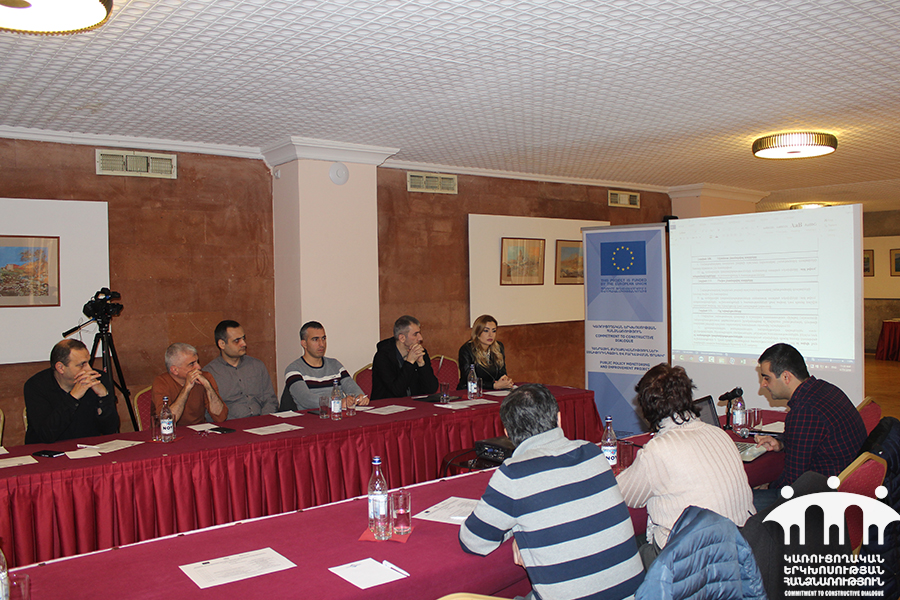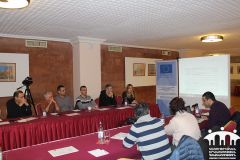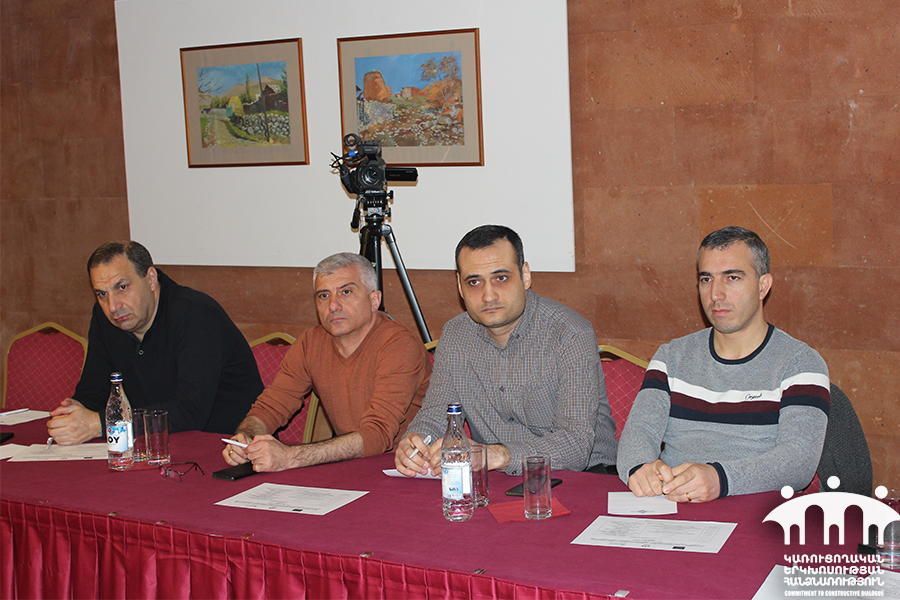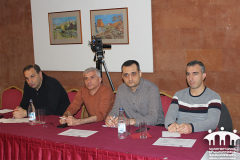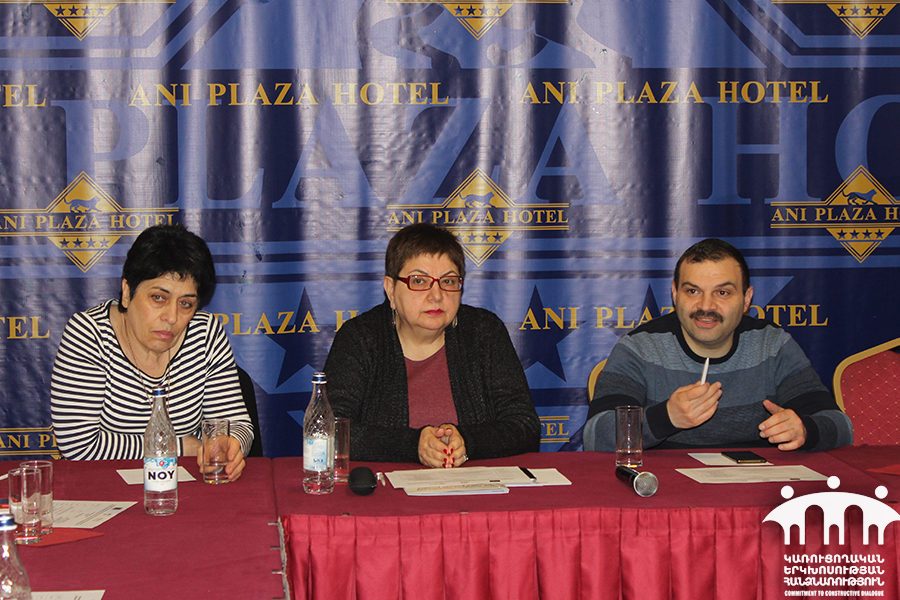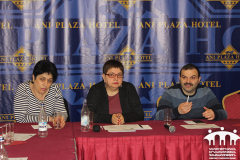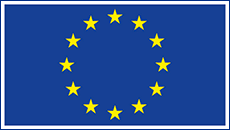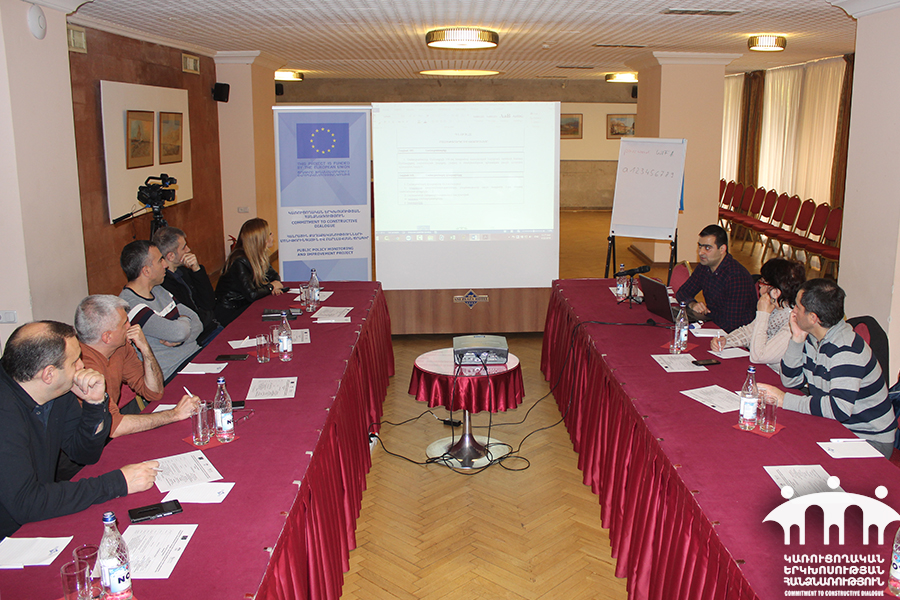
A roundtable discussion on the issues and suggestions raised during the implementation of legal acts regulating tax relations was held on 23 April within the framework of the “Public Policy Monitoring and Improvement” sub-grant project implemented in the scope of the EU-funded “Commitment to Constructive Dialogue” Project.
Ms. Anahit Ghazanchyan, the “Public Policy Monitoring and Improvement” Project Manager, noted that the issue will be discussed especially in in relation with the case which is subject of concern of employers, that us the involvement of volunteers in the organisations. “Volunteers are an integral part of the NGO community, and it is impossible to work without volunteers, and it is possible that there is no grants, and there are no employees, but the mission of the organisation may be interesting for public and volunteers will come to work in that organisation,” she said, adding that the institute should have strong legal the bases.
Mr. Marat Atovmyan, mentors Group Coordinator of the “Commitment to Constructive Dialogue” Project, in his welcoming speech, confirmed the existence of gaps in the field and expressed hope that the meetings organised within the framework of the project will be a step forward in the development of the volunteer institute.
Mr. Armen Petrosyan, expert of the project, spoke about the existing gaps in the volunteer institute, as well as the issues of profit tax calculation. He also presented the problematic issues in the provisions of the law on volunteers in NGOs.
The “Commitment to Constructive Dialogue” project is implemented with the financial support of the European Union by a Consortium of civil society organisations, which are the Armenian Lawyers’ Association (lead organisation), Agora Central Europe (NGO based in the Czech Republic), the Armenian Centre for Democratic Education-CIVITAS, the International Centre for Human Development, the SME Cooperation Association and the Union of Communities of Armenia.
The project aims to enhance the influence of civil society organisations (CSOs) and CSO coalitions/networks on public policies in Armenia. This will allow organisations that are already working in sectoral coalitions to access additional resources, new groups of civil society experts to come together and encourage place their causes on the local and national policy agenda, to identify common concerns and priorities and approach government bodies with constructive and strategic policy engagement initiatives.
The project has provided sub-grants to CSOs and CSO coalitions that will be directed to the development of public policies and will have tangible results in the 9 target sectors selected within the project, which are: Justice, Human Rights, Public Finance Management, Business, Education, Social Sector (social inclusion of children with disabilities), Agriculture, Economy and Energy.


